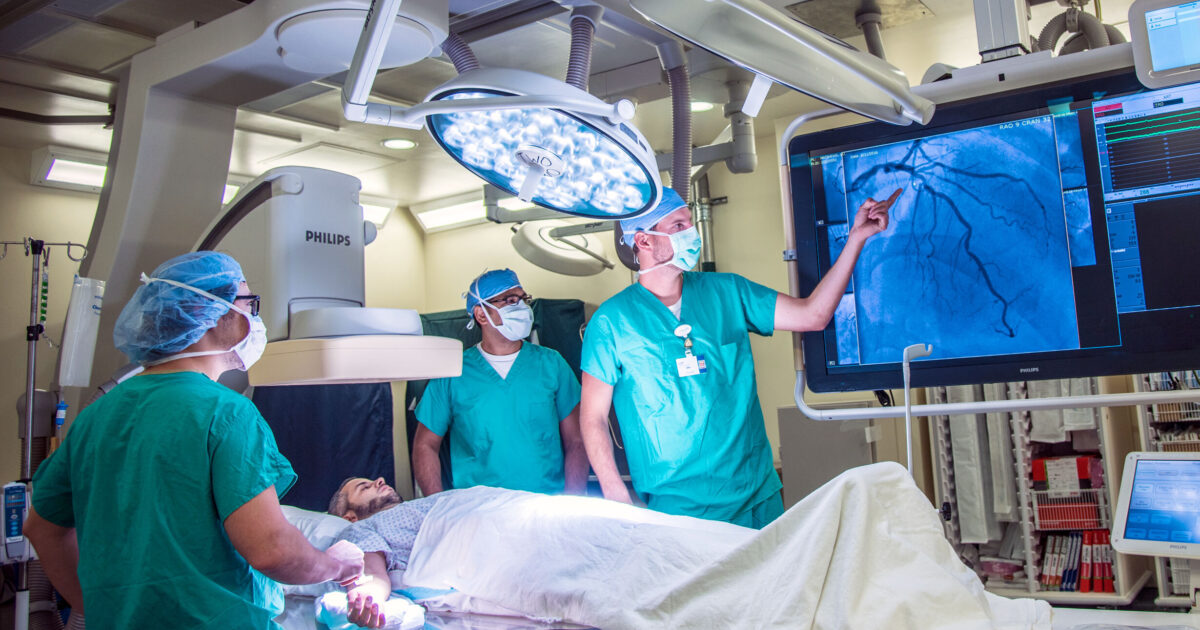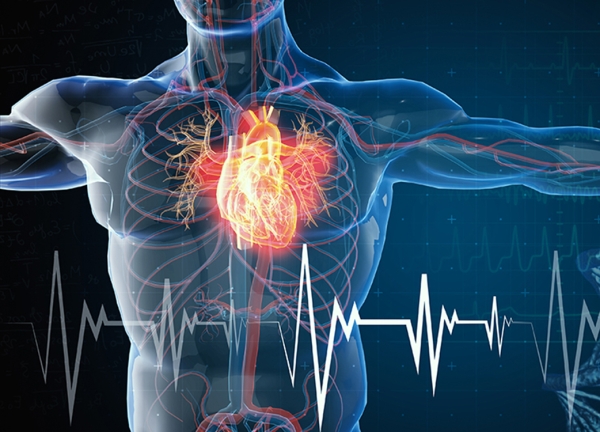Cardiology care FAQs: Answers to your top heart health questions
Cardiology care FAQs: Answers to your top heart health questions
Blog Article
Comprehending the Significance of Cardiology in Modern Healthcare Providers
Cardiology plays a crucial duty in modern medical care, specifically as cardiovascular disease proceeds to be the leading source of death worldwide. Advances in diagnostics and treatment have actually changed client treatment, making it possible for earlier treatments and improved results. The shift in the direction of precautionary cardiology encourages people to handle their health and wellness proactively. As modern technology remains to evolve, the combination of cutting-edge options may further redefine cardiology's effect on public wellness, motivating a more detailed assessment of arising trends and their implications.
The Prevalence of Heart Disease and Its Impact on Public Health And Wellness
Heart disease remains the leading cause of fatality around the world, its impact expands far past individual clients to affect public health and wellness systems and economic climates. The high occurrence of heart problem puts a significant strain on health care resources, requiring boosted financing for rehab, prevention, and therapy programs. Public health and wellness campaigns must address threat factors such as obesity, smoking, and inactive way of lives, which contribute considerably to the climbing incidence of heart conditions.Moreover, the financial problem connected with cardiovascular disease is immense, including not only straight clinical costs however also indirect expenses connected to lost performance and early mortality. Areas deal with obstacles in managing these prices, often resulting in variations in healthcare access and results. As the population ages and lifestyle-related risks remain to intensify, the seriousness for efficient cardiology treatments becomes critical. Subsequently, dealing with heart problem is not just an issue of private health however also a vital public health and wellness priority.
Developments in Heart Diagnostics and Imaging Techniques
Current developments in cardiac diagnostics and imaging techniques have revolutionized the area of cardiology, improving the capability to discover and check cardiovascular disease. Strategies such as heart MRI, CT angiography, and echocardiography have actually come to be progressively innovative, giving comprehensive photos of heart structures and functions. These methods permit the early identification of conditions like coronary artery disease, heart failing, and valvular disorders.Moreover, improvements in non-invasive diagnostics, such as wearable modern technology and remote tracking tools, have empowered individuals and health care providers. These devices facilitate real-time tracking of heart rhythms and other vital indicators, resulting in timely treatments. Furthermore, man-made knowledge is being integrated right into imaging evaluation, enhancing precision and efficiency in diagnosis.
Innovations in Treatment Alternatives for Heart Issues
Current improvements in cardiology have actually resulted in considerable innovations in therapy options for heart disease. These consist of sophisticated medical techniques that enhance procedural outcomes and arising medicines that offer brand-new methods for treatment. As the field advances, these technologies play a crucial function in improving individual treatment and results.
Advanced Surgical Techniques
Technologies in medical methods have actually changed the landscape of cardiology, providing new expect patients with heart problems. Minimally invasive treatments, such as catheter-based interventions, have substantially minimized recuperation times and hospital stays. Techniques like robotic-assisted surgery boost accuracy, allowing cosmetic surgeons to browse complicated physiological frameworks with higher precision. Improvements in imaging innovation assist in real-time visualization throughout treatments, boosting results. Transcatheter aortic shutoff replacement (TAVR) exhibits an advancement in treating aortic stenosis, enabling shutoff replacement without open-heart surgical treatment. Furthermore, hybrid techniques that incorporate medical and catheter-based approaches supply customized services for different cardiac problems. These advanced surgical methods not only boost individual safety and security but additionally increase treatment alternatives, highlighting the vital duty of advancement in modern cardiology techniques.
Arising Medicines and Treatments
As the landscape of cardiology remains to advance, arising therapies and drugs play an essential function in boosting treatment alternatives for heart disease. Innovations such as unique anticoagulants and progressed lipid-lowering agents have actually transformed the administration of cardio conditions, substantially lowering person morbidity and death. Additionally, the growth of gene therapies and regenerative medication provides encouraging methods for treating problems formerly considered irreparable. Scientific trials are constantly exposing the efficiency of these therapies, pushing the limits of typical therapies. The assimilation of electronic health and wellness innovations helps with customized medicine, permitting for tailored treatment plans based on hereditary and lifestyle variables. Collectively, these developments highlight the vibrant nature of cardiology, enhancing individual results and redefining criteria of treatment in modern-day healthcare.
The Role of Preventive Cardiology in Client Treatment
Preventive cardiology plays an important duty in individual treatment by concentrating on the recognition of danger elements that contribute to cardiovascular disease. With way of life adjustment approaches and early detection strategies, doctor can effectively decrease the occurrence of cardio events - Cardiology care. This positive method not only improves person results however additionally advertises long-term health and wellness
Risk Element Recognition
While cardiovascular diseases continue to be a leading root cause of morbidity and death worldwide, effective threat variable recognition acts as a foundation of preventative cardiology. Identifying danger aspects such as high blood pressure, diabetes, hyperlipidemia, and family history is crucial for early treatment. Healthcare experts utilize different evaluating techniques to examine these factors, enabling for customized preventative steps. Additionally, understanding a patient's way of life choices, such as smoking cigarettes and physical lack of exercise, additionally educates risk evaluations. This thorough assessment allows medical professionals to develop personalized treatment strategies focused on mitigating threats. By focusing on danger element identification, medical care systems can improve patient end results and lower the overall burden of cardio illness, inevitably adding to improved public health and wellness approaches and source appropriation.
Way Of Living Modification Methods
A wide variety of research studies highlights the important duty of lifestyle adjustment strategies in minimizing heart disease risk. These approaches include nutritional modifications, boosted exercise, smoking cigarettes cessation, and weight administration. By embracing a heart-healthy diet rich in fruits, veggies, entire grains, and lean proteins, individuals can reduce cholesterol levels and blood stress. Routine physical activity strengthens the heart and improves general cardio health and wellness. Furthermore, quitting cigarette smoking significantly minimizes the danger of heart illness and enhances recovery prices for those with status quo. Weight administration better contributes to cardiovascular health and wellness by mitigating other risk variables such as diabetes and high blood pressure. Implementing these lifestyle changes not just advertises individual health but additionally offers as a foundation of preventative cardiology in individual treatment.
Very Early Discovery Strategies
Way of life alterations significantly add to decreasing heart disease threats, however they are most effective when coupled with very early discovery methods. Preventive cardiology highlights the value of determining prospective heart issues before they intensify right into major conditions. Strategies such as blood stress tracking, cholesterol screening, and advanced imaging technologies like echocardiograms play essential roles in assessing cardiovascular health and wellness. Biomarkers and genetic screening likewise enhance the precision of very early discovery, allowing for tailored precautionary methods. Normal cardiac threat analyses equip doctor to intervene proactively, possibly protecting against cardiac arrest and strokes (Dr look at these guys Garcia). By integrating these early discovery approaches into routine care, individuals can take advantage of prompt way of living treatments and targeted therapies, ultimately boosting and enhancing end results high quality of life
Integrating Technology Into Cardiology Practices
As innovations in technology remain to improve different areas, the combination of cutting-edge tools and systems into cardiology techniques has actually become important for enhancing client treatment and results. Telemedicine systems permit cardiologists to keep track of patients remotely, boosting accessibility to care while decreasing the concern on healthcare centers. Wearable gadgets, such as smartwatches, make it possible for continual heart rate tracking, signaling both individuals and doctors to prospective concerns in real-time. Additionally, expert system (AI) is being used to analyze large quantities of heart data, helping in very early medical diagnosis and individualized treatment strategies. Advanced imaging strategies, consisting of 3D echocardiography, boost visualization of heart structures, resulting in a lot more accurate treatments. Digital health records (EHRs) improve individual information monitoring, making sure that cardiologists have instant accessibility to important information. With each other, these technological improvements are changing cardiology, promoting proactive monitoring and enhanced wellness results for individuals with cardio conditions.
The Significance of Person Education And Learning and Interaction
Person education and interaction play an essential role in the management of cardio health and wellness. By outfitting clients with knowledge concerning their conditions, therapy choices, and way of living adjustments, health care providers encourage individuals to take an active function in their treatment. This aggressive method can lead to improved adherence to suggested medications, dietary adjustments, and exercise routines, inevitably decreasing the risk of complications.Engagement likewise promotes a strong patient-provider partnership, urging open communication and trust fund. When people feel notified and entailed, they are more likely to voice problems and ask questions, which can bring about better medical outcomes. Additionally, educational sources, such as workshops or digital platforms, can improve understanding and promote self-management techniques. Generally, prioritizing patient education and learning and involvement is crucial for boosting cardiovascular health, enhancing high quality of life, and decreasing health care costs connected with cardio illness.
Future Fads in Cardiology and Their Potential Influence

Regularly Asked Questions
What Way Of Living Modifications Can Reduce Heart Problem Threat?
The current question addresses lifestyle modifications that can greatly decrease heart problem threat. Cardiology Jupiter. Adopting a well balanced diet, taking part in routine physical task, maintaining a healthy weight, handling stress, and staying clear of tobacco can significantly boost cardiovascular health and wellness
Just How Can I Recognize Very Early Indications of Heart Issues?
Identifying very early signs of heart problems involves surveillance symptoms such as chest pain, lack of breath, exhaustion, and irregular heart beat. Timely recognition of these indications can motivate essential medical evaluation and intervention for far better results.
What Are the Differences Between Cardiologists and Cardiac Surgeons?
The differences between cardiologists and heart doctors hinge on their roles; cardiologists largely detect and manage heart disease through non-invasive approaches, while cardiac cosmetic surgeons do operations to correct structural heart concerns. Each plays a crucial, distinctive role.

Exactly how Commonly Should I Get My Heart Wellness Checked?
The regularity of heart checkup varies based on specific risk factors. Typically, grownups should undertake evaluations each to two years, while those with status quo might need more frequent evaluations as encouraged by health care professionals.
What Role Does Genetics Play in Cardiovascular Disease Threat?
Genetics greatly influences cardiovascular disease risk, with familial patterns showing inherited conditions. Details genetics can incline people to hypertension, cholesterol concerns, and various other cardio problems, highlighting the value of hereditary screening in reviewing heart wellness. Heart illness remains the leading reason of fatality globally, its impact prolongs much past private patients to influence public wellness systems and economic climates. Public health initiatives need to attend to risk factors such as weight problems, cigarette smoking, and less active lifestyles, which contribute substantially to the increasing incidence of heart conditions.Moreover, the financial concern associated with heart illness is immense, incorporating not just straight clinical expenses but likewise indirect Get More Information expenses associated to shed productivity and premature mortality. Precautionary cardiology plays a crucial role in client treatment by focusing on the recognition of danger factors that contribute to heart illness. Artificial intelligence (AI) and machine learning are improving diagnostics and person monitoring, making it possible for very early detection of heart illness. The distinctions between cardiologists and heart specialists exist in their functions; cardiologists mainly diagnose and take care of heart conditions via non-invasive techniques, while heart specialists do surgical procedures to correct structural heart concerns.
Report this page